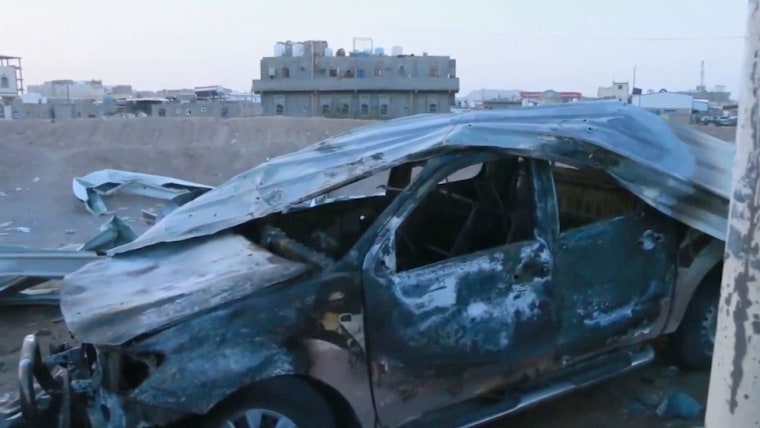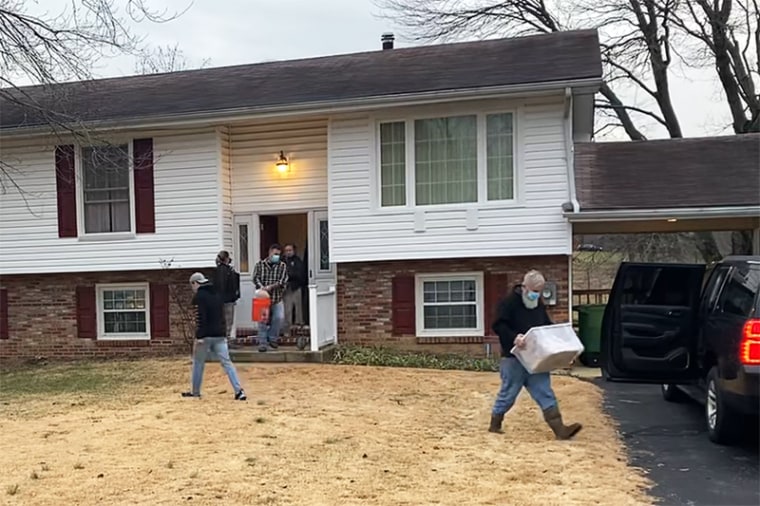"This is one of the largest groups I've seen sign a letter of this type in Canada,"
OTTAWA — More than 400 Canadian climate scientists and other academics are pleading with Finance Minister Chrystia Freeland to scrap her plan to create a tax credit for companies that build carbon capture and storage facilities.

OTTAWA — More than 400 Canadian climate scientists and other academics are pleading with Finance Minister Chrystia Freeland to scrap her plan to create a tax credit for companies that build carbon capture and storage facilities.

© Provided by The Canadian Press
Freeland floated the idea of the tax credit in last year's federal budget and consultations to design it ended just before Christmas.
A letter sent to Freeland Wednesday asks her to ditch the idea altogether, calling it a massive subsidy to the oil and gas industry.
"As well as undermining government efforts to reach net zero by 2050, the introduction of this tax credit would contradict the promise made by your government to Canadians during the election period to eliminate fossil fuel subsidies by 2023 as well as our international commitments under the Paris agreement," the letter reads.
"And once new subsidies are put in place, they are very hard to repeal."
Carbon capture, storage and utilization systems, known as CCUS, trap and isolate carbon dioxide emitted mostly from large-scale industrial operations and store it deep underground. Most projects currently use the added pressure created by the stored CO2 to push more oil out of the ground, known as enhanced oil recovery.
In Canada the biggest project is at the Boundary Dam coal-fired power plant in Saskatchewan, but there is also at least one project in the oilsands as well. Both include enhanced oil recovery.
Freeland has made clear enhanced oil recovery will not qualify for any tax credit but the academics want her to go further and limit its use only to industries that have no other options for reducing emissions, such as cement or steel. They want oil, gas, petrochemical and plastics producers to be excluded.
Adrienne Vaupshas, spokeswoman for Freeland, said in an email that the tax credit is about reducing emissions by at least 15 million tonnes a year.
That's about five per cent of the total emissions Canada needs to eliminate to hit its new targets for 2030 set last year.
"Consultations with the industry and other stakeholders with respect to the design of this CCUS measure have been positive and productive," Vaupshas said.
Natural Resources Minister Jonathan Wilkinson told The Canadian Press last fall that there is a role for CCUS in Canada, but it's not a solution for everything, and would only be supported if it captures all emissions.
The Boundary Dam project in Saskatchewan, for example, captures maybe 70 per cent, which also isn't good enough for the dam to pass muster on federal regulations requiring an end to unabated coal power by 2030.
"I would say to you, at this stage in Canada, CCS technology has not reached the level of commercial maturity nor cost maturity, that is likely going to be a solution before 2030," Wilkinson said.
Emily Eaton, an associate professor of geography and environmental studies at the University of Regina, said even if CCUS technology cuts emissions during fossil fuel production, that oil and gas is eventually going to be burned somewhere.
"So the federal government, I think, really has a choice to make," she said. "Either join countries around the world and plan for a sort of managed phaseout of oil and gas or it can prop up this industry with this unproven technology and sort of extend the life and also the emissions of the fossil fuel sector indefinitely."
The letter also argues that carbon capture and storage is still unproven on a large scale, and is very expensive relative to investments in renewable energies like solar and wind power.
Last summer Canada's biggest oil companies said getting the oilsands alone to net-zero emissions by 2050 would cost about $75 billion and about half the cuts will have to be made with CCUS. They also said the government would have to shoulder a lot of the cost.
The Canadian Association of Petroleum Producers said in August it wanted the CCUS tax credit to cover 75 per cent of the cost.
Matthew Paterson is a politics professor with a focus on climate, who until recently worked at the University of Ottawa. Now at the University of Manchester in England, Paterson said there is a political tension in Canada that exists for governments trying to maintain both climate action and the fossil fuel industry, which accounts for more than five per cent of the Canadian economy.
"They're a really good test case of how if you don't pick a side you are failing from a climate point of view," Paterson said. "At some moment those conflicts between fossil fuel interests and climate action are pretty sharp."
Freeland's office has not yet responded to the letter writers. University of Victoria geography and civil engineering professor Christina Hoicka, one of the lead authors of the letter, said she was pleasantly surprised by how many people signed it in just a few weeks.
"This is one of the largest groups I've seen sign a letter of this type in Canada," she said.
This report by The Canadian Press was first published Jan. 20, 2022.
Mia Rabson, The Canadian Press
Freeland floated the idea of the tax credit in last year's federal budget and consultations to design it ended just before Christmas.
A letter sent to Freeland Wednesday asks her to ditch the idea altogether, calling it a massive subsidy to the oil and gas industry.
"As well as undermining government efforts to reach net zero by 2050, the introduction of this tax credit would contradict the promise made by your government to Canadians during the election period to eliminate fossil fuel subsidies by 2023 as well as our international commitments under the Paris agreement," the letter reads.
"And once new subsidies are put in place, they are very hard to repeal."
Carbon capture, storage and utilization systems, known as CCUS, trap and isolate carbon dioxide emitted mostly from large-scale industrial operations and store it deep underground. Most projects currently use the added pressure created by the stored CO2 to push more oil out of the ground, known as enhanced oil recovery.
In Canada the biggest project is at the Boundary Dam coal-fired power plant in Saskatchewan, but there is also at least one project in the oilsands as well. Both include enhanced oil recovery.
Freeland has made clear enhanced oil recovery will not qualify for any tax credit but the academics want her to go further and limit its use only to industries that have no other options for reducing emissions, such as cement or steel. They want oil, gas, petrochemical and plastics producers to be excluded.
Adrienne Vaupshas, spokeswoman for Freeland, said in an email that the tax credit is about reducing emissions by at least 15 million tonnes a year.
That's about five per cent of the total emissions Canada needs to eliminate to hit its new targets for 2030 set last year.
"Consultations with the industry and other stakeholders with respect to the design of this CCUS measure have been positive and productive," Vaupshas said.
Natural Resources Minister Jonathan Wilkinson told The Canadian Press last fall that there is a role for CCUS in Canada, but it's not a solution for everything, and would only be supported if it captures all emissions.
The Boundary Dam project in Saskatchewan, for example, captures maybe 70 per cent, which also isn't good enough for the dam to pass muster on federal regulations requiring an end to unabated coal power by 2030.
"I would say to you, at this stage in Canada, CCS technology has not reached the level of commercial maturity nor cost maturity, that is likely going to be a solution before 2030," Wilkinson said.
Emily Eaton, an associate professor of geography and environmental studies at the University of Regina, said even if CCUS technology cuts emissions during fossil fuel production, that oil and gas is eventually going to be burned somewhere.
"So the federal government, I think, really has a choice to make," she said. "Either join countries around the world and plan for a sort of managed phaseout of oil and gas or it can prop up this industry with this unproven technology and sort of extend the life and also the emissions of the fossil fuel sector indefinitely."
The letter also argues that carbon capture and storage is still unproven on a large scale, and is very expensive relative to investments in renewable energies like solar and wind power.
Last summer Canada's biggest oil companies said getting the oilsands alone to net-zero emissions by 2050 would cost about $75 billion and about half the cuts will have to be made with CCUS. They also said the government would have to shoulder a lot of the cost.
The Canadian Association of Petroleum Producers said in August it wanted the CCUS tax credit to cover 75 per cent of the cost.
Matthew Paterson is a politics professor with a focus on climate, who until recently worked at the University of Ottawa. Now at the University of Manchester in England, Paterson said there is a political tension in Canada that exists for governments trying to maintain both climate action and the fossil fuel industry, which accounts for more than five per cent of the Canadian economy.
"They're a really good test case of how if you don't pick a side you are failing from a climate point of view," Paterson said. "At some moment those conflicts between fossil fuel interests and climate action are pretty sharp."
Freeland's office has not yet responded to the letter writers. University of Victoria geography and civil engineering professor Christina Hoicka, one of the lead authors of the letter, said she was pleasantly surprised by how many people signed it in just a few weeks.
"This is one of the largest groups I've seen sign a letter of this type in Canada," she said.
This report by The Canadian Press was first published Jan. 20, 2022.
Mia Rabson, The Canadian Press
 © Provided by Calgary Herald Paul Johnston at one of the stenothecoid localities near the Burgess Shale, Mount Field.
© Provided by Calgary Herald Paul Johnston at one of the stenothecoid localities near the Burgess Shale, Mount Field.









